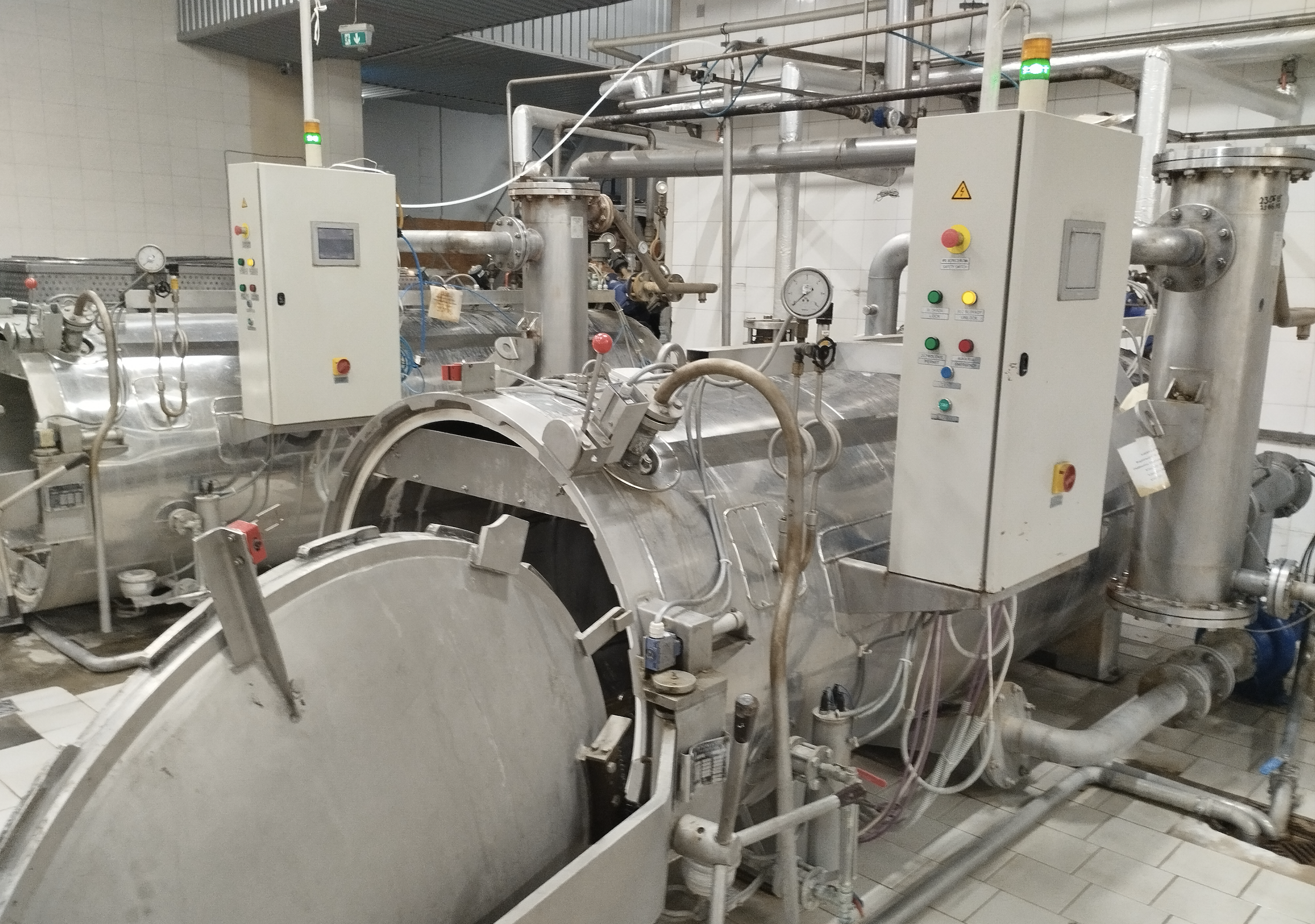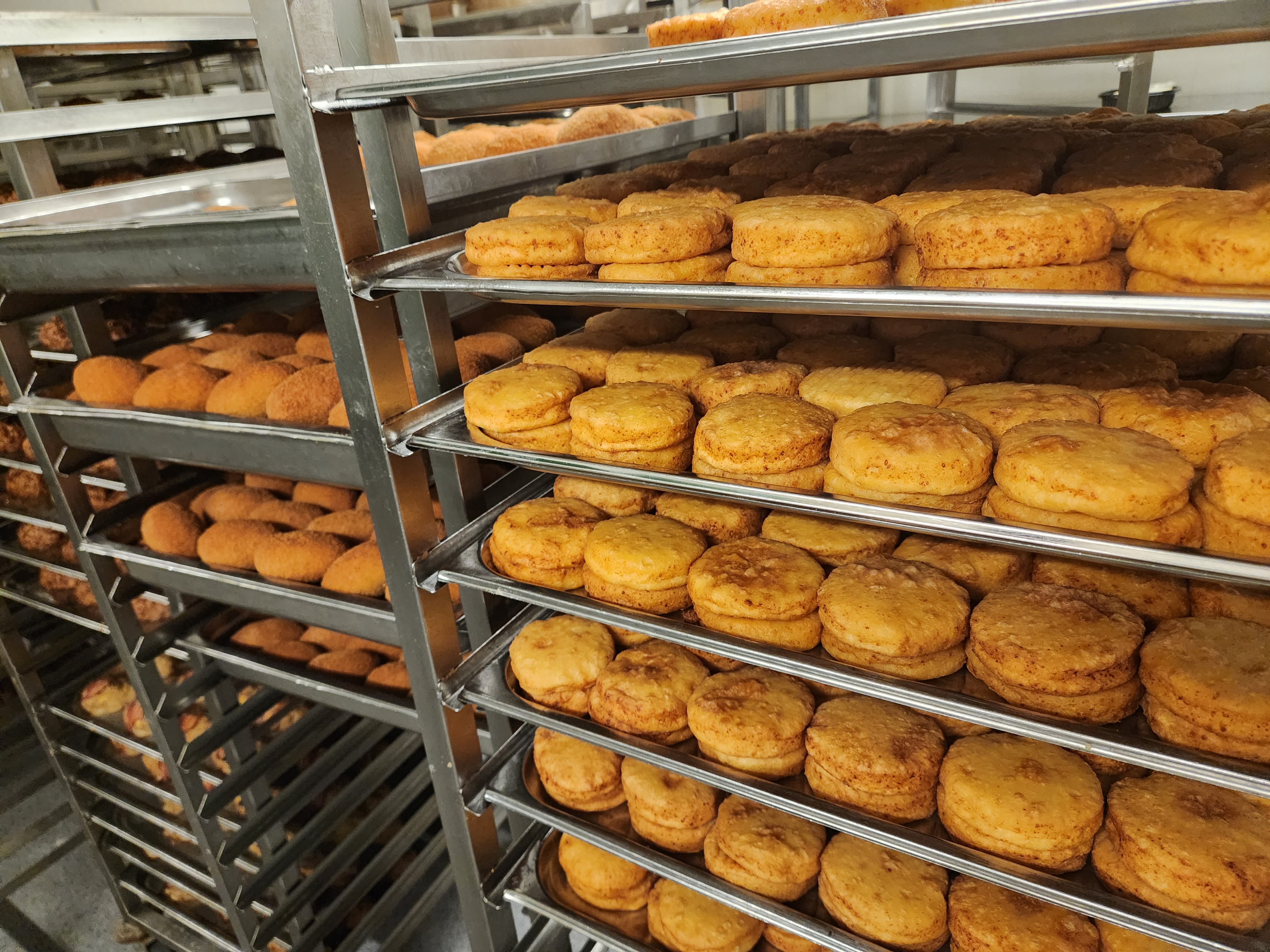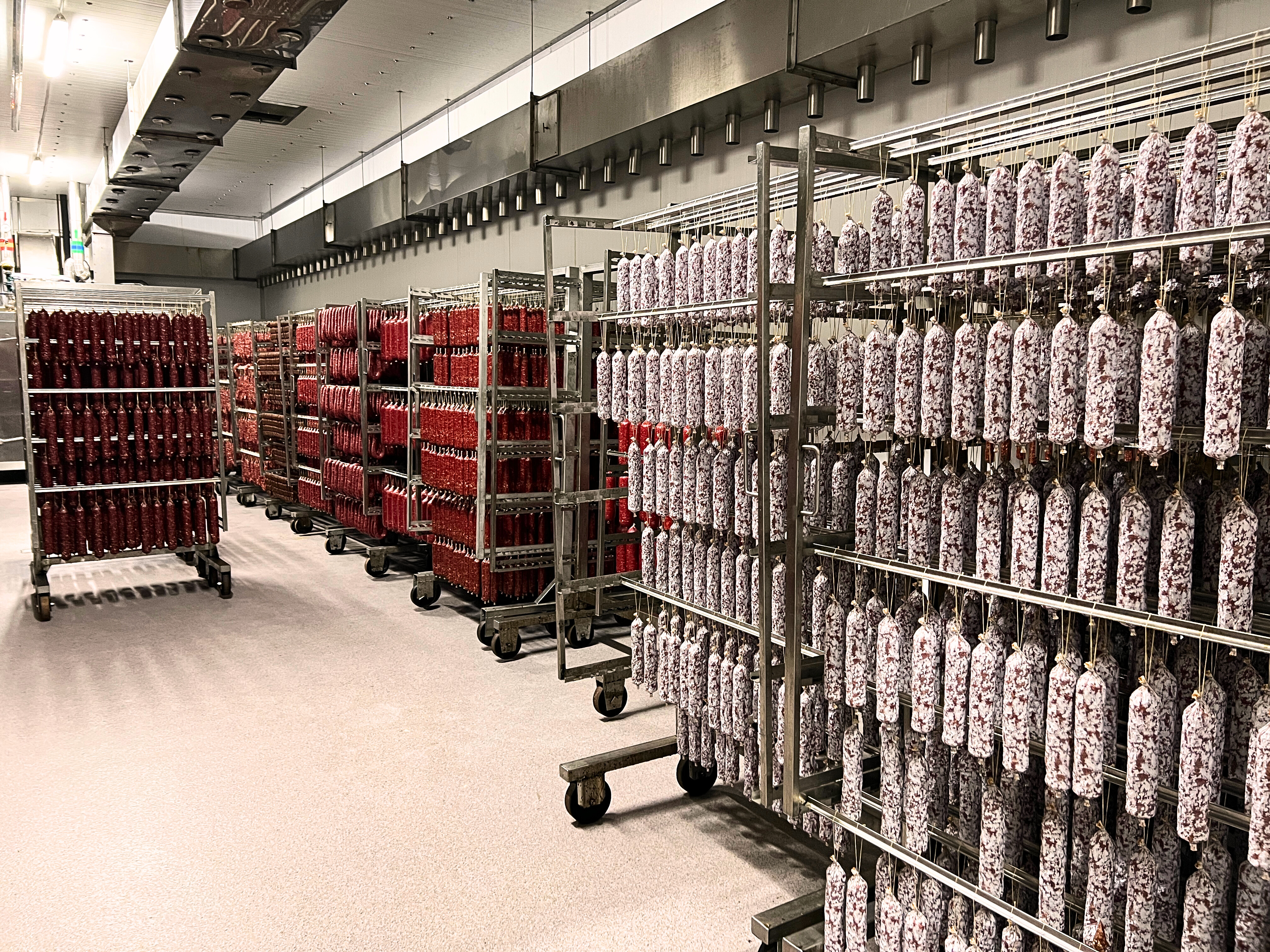
RIVONA, UAB owns canning, dairy, culinary, confectionery, meat processing and production units in Alytus, Kėdainiai and Šilalė.

The Alytus canning
![]() Putinų str. 33, Alytus, LT - 62175 Lithuania
Putinų str. 33, Alytus, LT - 62175 Lithuania
E-mail: aurimas.gargasas@rivona.lt
The Alytus canning plant produces sauces, fruit jams and marmalades, vegetable soups, fruit and vegetable purees, snacks, garnishes for herring, pickled salads, vegetables, and mushrooms – in total, about 90 types of products.
In 2012, a new steam-compressed vegetable cleaning line was installed in the canning plant, and in 2015, a powerful vegetable cutting machine was assembled.
In 2013, a modern German cooking kettle was installed in the plant, and in 2016, a new fully automated vacuum cooking kettle was completed. Both kettles perform divergent functions and allow for a significant acceleration of the production process.
In 2017, the premises of the plant were renovated, and new warehouses, administrative, and household facilities.
In 2020, a new warehouse with modern multi-level shelving and automatic ground-controlled robot-shuttles was built for the canning plant.
In 2022, a modern multi-level shelving and automated ground-controlled robot-shuttle storage-accounting program started operating in the Alytus Canning Plant, allowing for efficient use of shelving capacity and fully automated picking of orders for shipping. The cannery produced a total of about 5,000 tons of products and employed an average of forty-five workers.
In 2023, the Alytus Canning Plant started using a water-cooling system to cool the autoclaves, which has reduced the cost of water supply. The Alytus canning plant had a turnover of 5.3 million euros exclusive of value-added tax in 2023.

Alytus Dairy
![]() Putinų str. 33, Alytus, LT - 62175 Lithuania
Putinų str. 33, Alytus, LT - 62175 Lithuania
E-mail: alytaus.pienine@rivona.lt
The production unit of the company RIVONA, Alytus Dairy, produces yogurt, Greek-style yogurt, sour cream, drinking milk, kefir, fermented buttermilk, curdled milk, kefir drink, fermented buttermilk drink, rye drink, butter, cottage cheese, curd cheese, and fermented cheese, processed cheese, as well as ice cream, with over 70 types of dairy products in total.
In 2013, the ice cream production workshop began its operations and currently produces 32 types of ice cream. During 2024, this workshop produced 8.7 million servings of ice cream.
In 2018, a fermented cheese plant was established in the dairy, producing two types of semi-hard cheese. In 2024, 267 tons of fermented cheese were produced.
In 2022, Alytus Dairy began producing lactose-free products such as drinking milk, cottage cheese, yogurt, and sour cream.
In 2024, ultrafiltration introduced in the Dairy to improve the quality and yield of the curd produced. A new bulky curd packing plant also was built, which allows for faster and better-quality packing of curd.
In 2024, the turnover of Alytus Dairy was 26 million euros exclusive of VAT, and it produced 16,9 tons of goods. The dairy employs an average of 80 workers.
The Alytus cannery and Alytus dairy supply their products not only to the Lithuanian market but also to markets such as Ireland, Great Britain, Estonia, Latvia, Greece, the USA and France.

Kėdainiai Culinary
![]() Pramonės Str. 15 Kėdainiai, LT - 57241 Lithuania
Pramonės Str. 15 Kėdainiai, LT - 57241 Lithuania
E-mail: kulinarija@rivona.lt
Kėdainiai Culinary and the production units at 65 NORFA stores produce vegetable, fish, meat, and flour products: salads, salad mixes, snacks, and flour dishes - approximately 170 types of products. The production unit also supplies the market with fish. In 2024, a total of 5,179 thousand tons of culinary products were produced, as well as around 2,125 thousand tons of fish.

The meat processing unit
![]() Sodininkų Str. 3, Struikų Village, Šilalės District, LT - 75110 Lithuania
Sodininkų Str. 3, Struikų Village, Šilalės District, LT - 75110 Lithuania
E-mail: mesa.personalas@rivona.lt
Responsible for buying livestock - Artūras Pupšys
E-mail: arturas.pupsys@rivona.lt
Phone: +370 687 99403
The meat processing unit of the Group of companies of RIVONA UAB is located in Struikų Village, Šilalė District.
In 2016, RIVONA UAB acquired a meat processing company, which expanded the range of the company's production facilities.
In the meat processing department, an average of about 250 tons of raw materials are processed per month. Additionally, the meat production workshop produces cooked, marinated, dried, hot and cold smoked products (sausages, salamis, roulades, hams, bacon), with a total of over 200 product names. Around 500 tons of products are produced per month. The meat processing department employs about 180 workers.
The produced products are sold exclusively in the NORFA retail system.
In 2017, the packaging lines were renovated and new equipment for cutting products was acquired.
In 2018, new production tools were purchased (sausage stuffer, sausage hanging line, frozen meat block crusher, etc.), and the implementation of a new production and accounting system was completed.
In 2019, a new cutter was acquired, and a sausage clipping-hanging line was launched, cooking kettles with automatic loading/unloading of raw materials were purchased.
In 2020, an innovative raw material accounting software was installed, new ramps for raw material loading and carcass unloading were built, and an automated washroom for the reusable production containers (frames, carts) was installed.
In the poultry processing workshop, approximately 170 tons of marinated and hot-smoked poultry products are produced per month.
The slaughterhouse capacity reaches up to 150 pigs per hour, and on average, around 21,000 pigs and about 250 cattle are slaughtered per month.
In 2023, a new crate washing line with automatic crate feeding and unloading was installed. A new 500l cutter has been purchased to cope with the increase in production volumes. The reconstruction of the cattle slaughterhouse has been completed. The slaughtering process for both cattle and pigs has been certified to the FSSC 22000 standard.
In 2024, an automated defrosting chamber for frozen meat, an automated line for the preparation and marinating of hot-smoked pork products and semi-finished products, as well as an automated line for the marinating of poultry products was installed, from which the product will be fed directly into a dosing and packaging line with automatic weighing